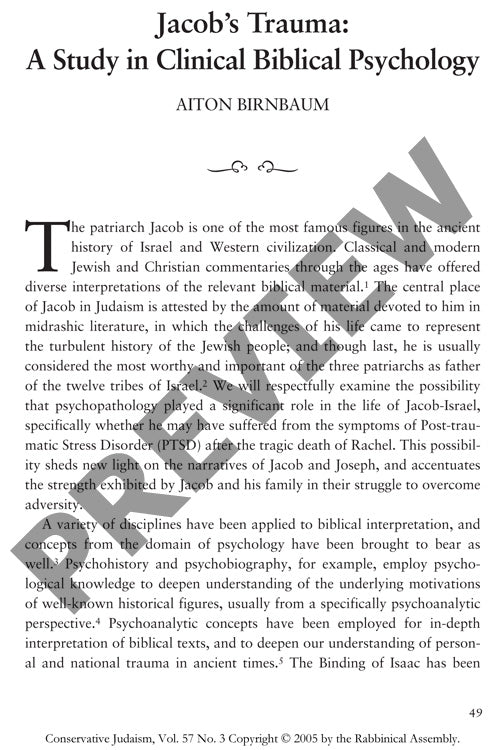Jacobs Trauma a Study in Clinical Bibli
Couldn't load pickup availability
Ancient trauma responses mirror modern diagnoses, as evidenced by the biblical patriarch Jacob's psychological symptoms following his beloved wife Rachel's death. Through systematic application of DSM-IV diagnostic criteria to Genesis chapters 25-50, Jacob's documented behaviors reveal a compelling case of chronic Post-traumatic Stress Disorder (PTSD). Clinical biblical psychology methodology, focusing on the plain meaning (p'shat) of the biblical narrative, illuminates Jacob's psychological condition through examination of his behaviors, emotional responses, and relational patterns. His reaction to Rachel's unexpected death during childbirth manifests classic PTSD markers: initial helplessness (failing to bury Rachel in the family tomb), persistent re-experiencing of trauma (obsessive preference for Rachel's children and intrusive memories), avoidance and emotional numbing (restricted affect toward other children and absence of overt mourning), and increased arousal symptoms (irritability and hypervigilance regarding Benjamin). The trauma's impact created significant functional impairment lasting decades, affecting family dynamics and potentially altering biblical history's trajectory. This cross-cultural psychological analysis demonstrates that traumatic stress responses transcend historical and cultural boundaries, supporting the universal applicability of PTSD symptomatology. The findings contribute to clinical biblical psychology while offering therapeutic implications for contemporary trauma treatment, particularly through bibliotherapy applications and destigmatization of PTSD symptoms among religious populations.

More Information
-
Physical Description
-
Publication Information
Published 2005
ISBN
-
Publication Credits
Aiton Birnbaum

